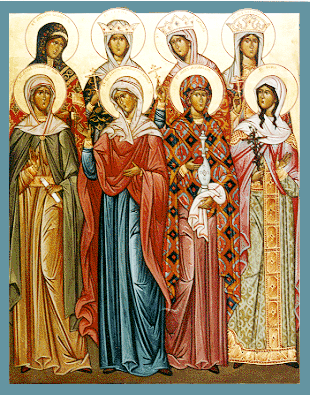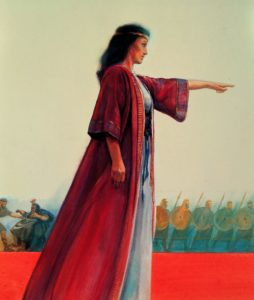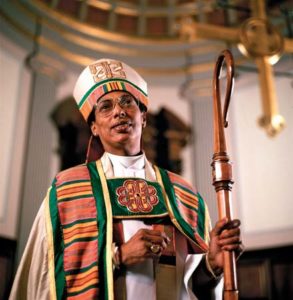 May 13, 2018: May God’s words alone be spoken, may God’s words alone be heard. Amen.
May 13, 2018: May God’s words alone be spoken, may God’s words alone be heard. Amen.
I want to wish all the women here a very Happy Mother’s Day – all the mothers, sisters, daughters, wives, nieces, aunts, and friends. Women who have been a part of our lives – nurturing, mentoring, loving, caring. That is what we really celebrate today – the journey of women – us, if we are women, and those women who have been a part of our lives. Because family is not defined, but by relationship – by love.
But as I note every year, this is also a difficult day, or one that brings about mixed feelings, for many – those whose mother has died, or those whose mothers are absent – in whatever way that may mean, or those mothers who have lost a child, for them – Mother’s Day can be troubling, awkward, or even painful. Our prayers are with them today too.
I mentioned at the beginning of the service, today, in honor of all women everywhere, we are once again abandoning the all-male language for God in today’s service. We do this every year on this Sunday. Why? Because if we are to truly celebrate Mother’s, then we need to see the ways in which this identity has been stricken from our collective faith consciousness through the bombardment of Father in our liturgy. I will not preach much on that today, as most of you have already heard that sermon more than once, and you can find those sermons on our website.
And so here we are today, Mother’s Day, hearing a rather interesting story from the Acts of the Apostles. Interesting in many ways, but especially that it would be read today, a day when we celebrate women, and just a few days out from our own Episcopal election, where we will choose our next bishop.
You see, what struck me in the text was this: “…So one of the men who have accompanied us during all the time that the Lord Jesus went in and out among us, beginning from the baptism of John until the day when he was taken up from us– one of these must become a witness with us to his resurrection.” Did you catch it? “…one of the men”
Just to understand what’s going on here, the Acts of the Apostles is part two of a two book series by the same author. Anyone know what the first book was? The Gospel of Luke. Luke 1 tells us that the author is writing this account of the life of Jesus for someone the author refers to as “most excellent Theophilus.” We don’t know if that is a person, or a title, as it means “lover of God.”
Anyone know how Acts begins?
Like this… “In the first book, Theophilus, I wrote about all that Jesus did and taught from the beginning until the day when he was taken up to heaven, after giving instructions through the Holy Spirit to the apostles whom he had chosen.”
So today we are hearing just a few verses after that opening in Acts, and the apostles, having witnessed the ascension of Jesus, are having their first board meeting without him, and there is an empty seat at the table – the one good old Judas (now dead described in a manner worthy of a cheap horror movie in the verses thankfully deleted from today’s reading). Now you might think – what’s the big deal? Why appoint anyone? Is there some sort of magic in having 12?
Not magic, but significance.
This is a Jewish story – a story of Jewish men and women, followers of a Jewish messiah – Jesus. The restoration of the 12 is the return to wholeness of the representative 12 tribes of Israel as part of the Good News. In other words, the author of Luke-Acts is very clear – from the first chapters of Luke, to the final chapters of Acts – that this good news is first and foremost good news to Israel. Even as we hear next week the story of Pentecost, with all the differing languages being spoken, they were voices of the Jews of the diaspora[1]who had gathered for the Festival of Weeks (or the Feast of Fifty Days). And as a Jewish story, this election to fill that twelfth seat is important.
But what we don’t hear today are two very important points this author makes in this two-parter. In the verse just before the ones we heard today, it reads “All these were constantly devoting themselves to prayer, together with certain women, including Mary the mother of Jesus, as well as his brothers.” So, counted among the disciples were women. In the first book – Luke – the author tells us in Chapter 8: “The twelve were with him, as well as some women: “….Mary, called Magdalene, …and Joanna, the wife of Herod’s steward Chuza, and Susanna, and many others, who provided for themout of their resources.” To be clear – the “him” they were with was Jesus, and the “them” they financed were the collective group of disciples, including the 12 and Jesus.
That verse in Luke 8 would be the biblical equivalent of one of those PBS messages that accompany their broadcasts – you know the ones where they thank Mobile Corporation and viewers who support the station financially. Today it might sound like this [TV Broadcaster Voice] “The ministry of Jesus, and of his followers, are made possible by…the Holy Spirit, and women like you.”
So, the women were with them from the start, made the ministry possible through their own means, were – as we all know – the first to receive the good news…in fact Mary Magdalene, in all the gospels, was the first one Jesus chose to appear to, and is called, for that reason, the Apostle to the Apostles. But…not good enough to fill the seat of Judas?
Of course, we can say – well, that was way back then, and the society was patriarchal, so was the Jewish faith, right? Well, it was a long while ago, yes, and Judaism is not historically a bastion of feminism. However, neither are we – the Church, and sadly – not much has changed today. Is it any wonder why, when the language of our faith makes it abundantly clear that women are second class citizens of our Church.
Women are the ones whose pronoun is italicized in the Book of Common Prayer – it always reads “he” or “him” followed by “she” or “her” in italics. Women are the ones left out of any description of God or the Holy Spirit when the bible, the sacred text of our faith, makes it clear that we are both created in the image of God – male and female, and that the Holy Spirit was, to those earliest of scriptural authors, feminine. Women are the ones who are few and far between in the episcopate – the ministry of bishops.
Well, I will state unequivocally that a woman’s place is in the House – of Bishops…and of Deputies…and any other place she feels called by God to be. Why bring this up today? Because we cannot celebrate our mothers, without lifting up our daughters. And we can’t lift up our daughters very high if we don’t crash through the stained glass ceilings that seek to hold them back.
This is an important moment in the Christian church folks, and we need to talk about that today of all days. We especially have a responsibility to speak of it, because it is the church that has often been the foundation of the way in which women are treated in society – and God knows, we have some work to do there too.
The horrors of this administration’s misogyny and sexism has given forth to women and their allies taking to the streets to say “enough!” It has opened the door to the MeToo Movement, and that in turn has paved the way for women to say “no more” to harassment and abuse – and to educate people to the reality of women’s lives. For instance, were you aware that the largest victims of gun violence around the world are women? So women everywhere are getting engaged at all levels of government, and actively participating, along with allies, in organizations large and small dedicated to exposing and eliminating gender bias – changing our society for the better.
But society has rooted its sins of sexism and misogyny in the faiths we profess. We cannot, nor should not, point fingers at other faiths, without first looking within at our own complicity in what is going on. And so, the church today is doing just that.
Just a few weeks ago, “The Church of Sweden […] decided its clergy should stop describing God in masculine terms, such as he, and instead use more gender-neutral language.” Sadly, “This change has divided the country.”[2] So, despite our denials – we really do think God is a boy. I should note, they are not the only church considering this change.
And our own Episcopal Church is on the move. Even now, 47 women appointed by our President of the House of Deputies, the Rev. Gay Clark Jennings, is meeting to prepare for General Convention this summer legislation that would seek to break down the walls of injustice with regard to gender in the church. I am humbled to have been appointed as one of these 47. We are split among five areas: Theology & Language (how we speak about God), Structural Equity (dealing with role, pay, and pension) – this is the one I serve on, Title IV & Training (referring to the Canons of our Church dealing with discipline of clergy), Truth & Reconciliation, and Social Justice for Women (outside the church). I am excited and hopeful by the work that these women are doing.
In our own diocese, we also are at work to change, passing a bill I authored last January at convention requiring the creation of an Anti-Sexism Task Force to develop training and report on status of women clergy in our diocese. This Task Force is up and already actively at work.
And, as I mentioned earlier, this Saturday, May 19th, our diocese will gather to elect our new bishop – an election which includes for the very first time in our diocese, women candidates. The candidates are the Rev. Carlye Hughes, the Rev. Lisa Hunt, and the Rev. Canon Scott Slater. Each of them are wonderful people of faith, and we will blessed by any of them if elected.
Now you may be surprised to hear me say that we will do as they did in the passage from Acts at this election. Remember, the story said that once they had selected their candidates, “Then they prayed and said, “Lord, you know everyone’s heart. Show us which one of these two you have chosen to take the place in this ministry and apostleship from which Judas turned aside to go to his own place.” We too will prayerfully listen to the workings of the Holy Spirit, knowing that She will guide us to our next bishop.
We will NOT, however, cast lots – just ballots – nor will we decide we must choose a man – fairly obvious from the slate. That might have been the thinking of those folks back in Jerusalem so many centuries ago, but we don’t play that game here anymore.
But even with all of that, our diocese, The Episcopal Church, and our Anglican Communion, have much more work to do. In 2015, the ordination of the Rt. Rev. Libby Lane, Bishop of Stockport in the Church of England was interrupted by a shout that proclaimed that it wasn’t biblical. There are women priests across The Episcopal Church who are paid less, offered less responsibility in the church, and abused, harassed, marginalized, or ignored by fellow clergy and bishops, and even by male parishioners.
Sadly, we are not alone.
Our United Methodist sisters are grieving at the decision by their church not to include gender specifically in the list of people one cannot discriminate against for full inclusion in the church. Also defeated was language that would make it clear that God is not a male or a female. Are they taking that in silence? No. Facebook profile pages went up by UMC clergy women saying “Nevertheless, She Preached!” I suspect it won’t be long before they will change their denomination in wonderfully inclusive ways.
And there is the Baptist church. The Washington Post reported last week that “The Southern Baptist Convention is having a reckoning with the #MeToo movement…. More than 2,000 Southern Baptist women signed an open letter Sunday condemning comments made by Southwestern Baptist Theological Seminary President Paige Patterson, in which he described a young man’s lewd comments toward a teenage girl as “biblical,” and said the proper response to abuse within marriage “depends on the level of abuse to some degree.” No, I kid you not, those were actual statements made by a actual leader in the Southern Baptist Church.
The author of the article, Gracy Olmstead seemed to know her church history, when she wrote “Patterson’s domineering attitude does not stem from his Christian roots, but rather from a lack of rootedness: Christianity’s past is replete with heroic women, as well as with calls to protect the vulnerable, the oppressed and the unjustly treated. The […] teaching that a woman’s physical abuse is not actionable, and the sidelining of women that happens in some churches should not be credited to Christianity, but rather to a meager and shallow understanding of the faith’s rich history.”[3] Indeed.
So, today, as we celebrate the women in our lives, let us understand our faith history, andremember the women disciples of Christ throughout the centuries, which include: Deborah the Judge & Prophet, Queen Esther, Mary Magdalene, Mary the Theotokos (God bearer – chosen by God to bear Jesus), Lydia, Priscilla, Hildegard of Bingen, Julian of Norwich, Teresa of Avila, Catherine of Siena, Teresa of Calcutta, Dorothy Day, Harriet Bedell, Julia Chester Emery, Phoebe, Perpetua, Frances Perkins, Harriet Beecher Stowe, Mary & Martha of Bethany, Florence Nightengale, the Rev. Dr. Emilie M. Townes, the  Philly 11, the Rt. Rev. Barbara Harris, the Most Rev. Katherine Jefferts Schori, and so many more. Missing from this list are many more women of color, and women of other faiths and traditions. Let’s remember them.
Philly 11, the Rt. Rev. Barbara Harris, the Most Rev. Katherine Jefferts Schori, and so many more. Missing from this list are many more women of color, and women of other faiths and traditions. Let’s remember them.
Let us also remember the ones in all our hearts and minds – the mothers and grandmothers that brought us to church (and shhhed us when we got a bit too loud), the Episcopal Church Women who fought for education and justice, the women of just about every church who led from behind because there was no other way to lead, and who, without their presence, many a church would have failed long ago.
Let us remember them, keep them in our hearts, and thank them. Without them, many of us would not be sitting here today with Christ in our hearts. We honor them, and the women of our faith through the centuries, on this Mother’s Day.
May we, as a church united, one day truly celebrate the fullness of God – not as female or male – but as reflected in the women and girls born of our mothers, as much as the men and the boys. When we do this, we will then come closer to knowing the God we serve, the God that loves us, the God of our hearts, in whose image all of us were made.
Happy Mother’s Day!
Amen.
For the audio from the 10:30am service, subscribe to our iTunes Sermon Podcast, or click here:
[1]Sermon Brainwave. WorkingPreacher.Com.
[2]https://www.pbs.org/newshour/show/is-god-is-beyond-gender-swedish-church-challenges-traditional-perception
[3]https://www.washingtonpost.com/news/posteverything/wp/2018/05/10/what-early-christians-knew-that-modern-christians-dont-women-make-great-leaders/?noredirect=on&utm_term=.ba08f553cc22&wpisrc=nl_headlines&wpmm=1
The Rev. Diana L. Wilcox
Christ Church in Bloomfield & Glen Ridge
May 13, 2018
The Seventh Sunday Of Easter
1stReading – Acts 1:15-17, 21-26
Psalm 1
2nd Reading – 1 John 5:9-13
Gospel – John 17:6-19




